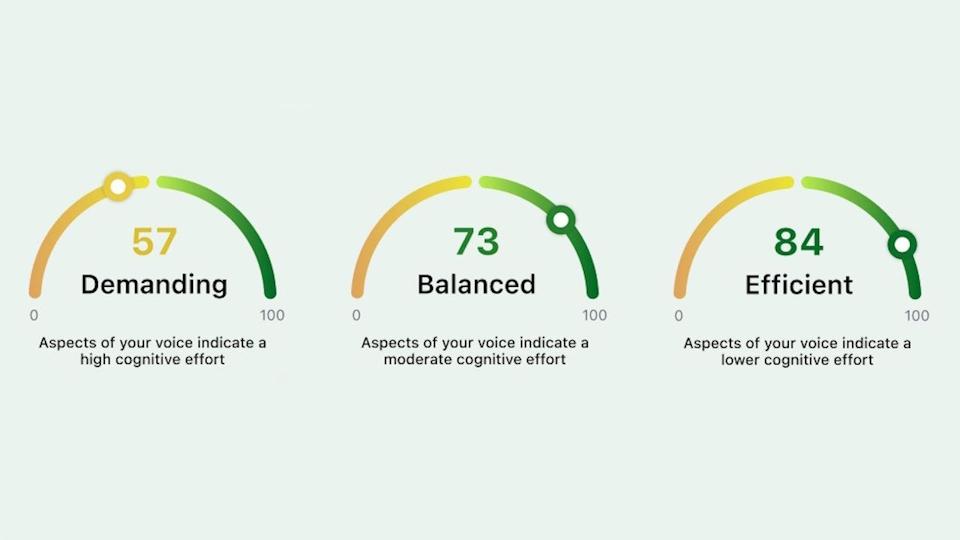Sonde Health launches voice-based cognitive fitness tracker

Sonde Health has made a name for itself by developing software that can detect illness from the sound of a patient's voice. Now, it has launched a technology for tracking cognitive fitness, which it hopes may be able to spot signs of decline early.
The software – Sonde Cognitive Fitness – allows users to monitor brain exertion in real-time by analysing vocal biomarkers using machine learning, an approach that is analogous to the use of fitness trackers to monitor physical and heart health.
It can either pick up the speech patterns passively, listening to the user's voice over the course of a day, or in an active mode based on a 30-second sample recorded using their smart device.
The readout is a simple score out of 100, with anything above 80 deemed 'efficient' – meaning the user is experiencing low levels of cognitive effort – while 70 to 79 is recorded as 'balanced' and a score of 69 or below suggests they are having to invest 'demanding' levels of cognitive effort.
It has been developed in partnership with audio technology specialist GN Group and academic partners including Massachusetts General Hospital, which started a clinical trial of the technology last year to track cognitive decline in subjects ranging from normal levels of cognitive function to mild dementia.
Boston, Massachusetts-based Sonde Health – a PureTech Health company – has previously used its vocal biomarkers to detect respiratory disease, as well as mental health issues like anxiety and depression.
The cognitive fitness tracker is "the natural progression for Sonde, as we are now the only company to analyse and monitor vocal biomarkers for three of the body's crucial functions – cognitive, mental, and respiratory," commented chief executive David Liu.
He stressed that it isn't a diagnostic tool. Rather, it uses speech to "provide early clues about your wellbeing – for instance, if you have consistently lower cognitive fitness scores when performing simple tasks."
The company said that the software uses a verification process to ensure that only enrolled and consented users' voice samples are collected, and no audio is stored or transmitted off the device to protect privacy.
It has launched the software as almost one in five people over age 50 worldwide is affected by mild cognitive impairment (MCI), and more than 55 million people worldwide are living with dementia – a figure that's projected to nearly triple by 2050.











